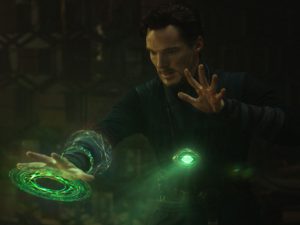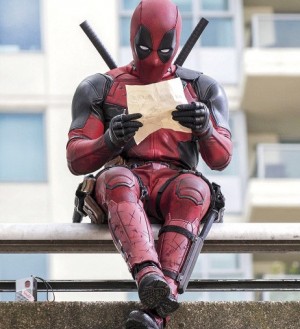Transcending formula
Superhero movies that work
A still from an issue of “Moon Girl,” a series from the Golden Age of Comics. Superheros are a tradition many years in the making, but how are they best transitioned to our modern screens?
August 24, 2017
Superhero movies seem to be a staple of summer cinema. Unfortunately, some common aspects of these blockbuster films — money grabbing and franchise building — lend themselves rather easily to repetition and staleness (see “Captain America: Civil War” and the breadth of Marvel movies) or just poor quality (see “Man of Steel” and most of DC’s current cycle).
That being said, people like superheroes. People like them, and there’s always something to work with when making these films. Each is endowed with a large budget, the best technologies, talented actors, and plenty of people who actually care. 2017’s summer superhero blockbusters aren’t artistically perfect, but they’re getting somewhere. What did “Wonder Woman” and “Spider-man: Homecoming” get right?
“Wonder Woman”
From the beginning, this film held a lot of promise. The World War I period piece tells the origin story of Amazonian warrior Diana (Gal Gadot): her entrance into the world of man, her budding romance with General Steve Trevor (Chris Pine), and her transformation from a naive girl to a self-assured superhero. This narrative strategy is different from many of the past DC films.

Diana Prince, also known as Wonder Woman (Gal Gadot) and General Steve Trevor (Chris Pine) walk through a war zone. This installment far outmatched its predecessors of the DC extending universe.
The lore was a little fuzzy, and arguably the premise and plot could have been crafted better. However, within the confines of its source material, “Wonder Woman” succeeds not only as a fun, high-energy action film but also as an exploration of character. This success happened for a few key reasons.
“Wonder Woman” was long overdue in that it utilized something embarrassingly under-utilized in this whole comic book page to big screen phenomenon — women. Comic books have frequently showcased female heroes, even going all the way back to the ‘40s. More than staying true to the comic book craft, the character of Diana is important because these huge films should be accessible to as many audiences as possible. While the presence of a female hero isn’t the only thing that salvages “Wonder Woman,” the film couldn’t have generated as much interest or been as compelling had the star merely been a man.
Additionally, the characters in the film didn’t fall flat, as if they were merely fulfilling a role. Diana and Steve, in particular, have clear motivations, personalities, and stories. Gal Gadot’s crazy charismatic performance doesn’t hurt the film either, and by the end, the audience is substantially emotionally invested. It feels like this kind of movie — with so much high-paced action and twists and turns — should feel.
And while some may critique the sensationalism of the conflict, which consists of Diana battling the actual God of War in the middle of one of the most intense military conflicts in human existence, it’s really not a bad thing when examined in context. While the film is pretty monumental, all this mythology-infused World War I action is rightfully earned by way of adequate plot and tension build-up. This represents a departure from what DC has been up to recently when it comes to the big screen.
There’s not much to look toward of the current cycle, but “Man of Steel,” “Batman vs. Superman: Dawn of Justice,” and “Suicide Squad” all received dismal reviews, and there’s one important reason for it. They were eager, rushed money-grabs trying to latch onto the recent success of Marvel films, and were certainly released too soon after Christopher Nolan’s Batman trilogy. As a result, DC’s recent movies were chock full of purposeless action and devoid of anything resembling emotion. “Wonder Woman,” on the other hand, feels measured and meaningful.
We can only hope that DC continues on their current path, and we might be in luck, as Gal Gadot and director Patty Jenkins are already set to work on a sequel that will hit theaters in 2019.
“Spider-man: Homecoming”
There are a lot of variables into making a film a success. “Spider-man: Homecoming,” as the second reboot of the series, had a lot to accomplish if it wanted to make a lasting impression. The first in what should be a Spider-man trilogy immediately distinguished itself by reordering the traditional superhero narrative.
Partly to fit in with the Marvel Cinematic Universe’s messy, messy timeline, as well as to refocus the Spider-man mythos, the film is not an origin story. Peter Parker (Tom Holland) has already been bitten by a radioactive spider and learned to control his abilities. In fact, he’s already been a part of the events of “Captain America: Civil War.” This allows for a more detailed look into Parker’s psyche and his decisions regarding what sort of superhero he wants to be.

Peter Parker (Tom Holland) and best friend Ned Leeds (Jacob Batalon) stare longingly at the main romantic interest of the film, Liz Allan (Laura Harrier). The critical success of “Homecoming” demonstrates a lot about what works in the Marvel universe.
Peter’s character, therefore, becomes the engaging centerpiece of the film. He’s a dorky, brainy, and eager teenager, characteristics of a sort of residual Peter Parker left in the back of the viewer’s mind after decades of comics, television programs, and movies. Brilliantly, instead of going for something specific or drawing on previous interpretations, “Homecoming” taps into this shared cultural knowledge and presents a character that clicks.
Because the title character brings such a genuine presence to the film, the humor in the script is all the more effective. Peter and his best friend Ned Leeds (Jacob Batalon) are an awkward but iconic duo, Ned’s discovery of Peter’s identity being a particularly poignant example of their chemistry and one of the funniest scenes in the films. Between their friendship, Peter’s adorable crush on Decathlon captain Liz Allan (Laura Harrier), and the antics of burnout student Michelle (Zendaya), the film brings in plenty of laughs. These relationship dynamics also indicate something else important about “Homecoming,” that it is, first and foremost, a high school comedy.
In that sense, it doesn’t take itself too seriously and gives itself some breathing room to find a personality. While it does get tucked nicely into the Marvel Universe, it’s also separate. The film walks this thin line well, using to its comedic advantage iconic characters such as Tony Stark, but not getting bogged down in pointless over-the-top action.
The film remains focused on its goal: engaging audiences while staying true to the spirit of Spider-man. And this film managed to do it without needing to exist light years away, as was the case in “Guardians of the Galaxy,” which, while being brilliant, felt closer to “Star Trek” than anything Marvel related. The focus paid off, and the second reboot of “Spider-man” went from doubtful beginnings to be more than satisfying.
Superhero movies have to mean something if you want them to be good. They have to have a purpose. “Homecoming” has that. We can only hope the rest of Marvel learns from it, but the reality is that that they’ve probably gone too far with sloppy construction in so many of the key films that it’s almost impossible to envision a world in which the ensemble cast of “Avengers: Infinity War” and the untitled fourth Avengers film could be handled with any sort of tact.
What’s important to understand about this is that movies aren’t comics. People watch movies for different reasons than they read comics. What works in a comic doesn’t work on the big screen. The big screen needs precise intent and execution, and while jumping back and forth between these two media can be done and done well, Marvel’s set up a strategy to where it’s only done well about a fifth of the time. “Spider-man: Homecoming” falls within that lucky category.
So, in summers to come, what will the theaters be like? Probably still filled with superhero movies, and most of them probably won’t be something special. But fear not, The Prowler will be there to clue you in on which ones are worth a watch.








